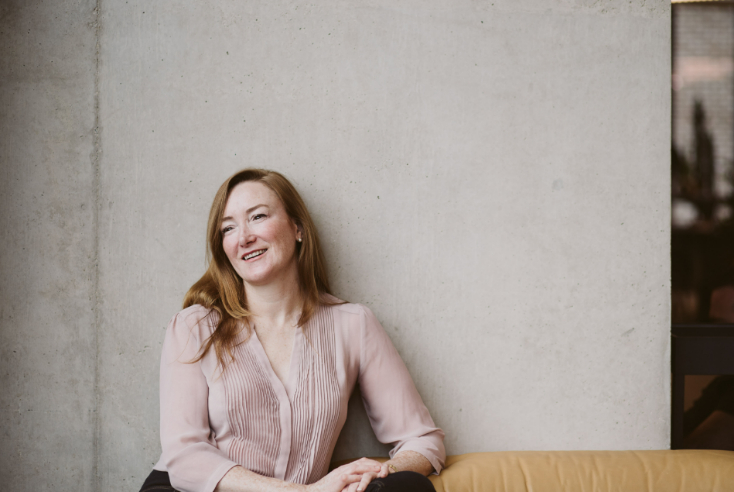Ally Owen: You peak in media at 34... by 45 you're invisible

The Media Leader Interview
Ally Owen, founder of The Brixton Finishing School, speaks to The Media Leader about why ageism is still tolerated and what’s next for diversity and upskilling.
Ageism is the last “ism” that is “acceptable” in the industry, says Ally Owen, founder of The Brixton Finishing School.
“If you replace that ageism with another word, you would be “Oh no, we’re definitely not racist or sexist or ableist”, but with ageism it seems to be the one area where there seems to be a blind spot,” she tells The Media Leader on the fifth anniversary of starting the upskilling organisation from her kitchen table armed with her credit card.
Owen, one of the industry’s most outspoken advocates for inclusion, turned 50 herself last week. The milestone has only served to embolden her passion for ageism being “something we need to fight”, particularly if retiring in one’s 70s becomes the norm.
Advertising is clearly a younger person’s game right now. Only 3% of advertising employees have a job after age 50, according to the IPA, while nearly a third (30%) of women over 45 will simply not return to work at all.
She stresses: “You become invisible [after 45]. You know, I think you peak in the media industry at 34. Everybody thinks it’s not gonna happen to them.”
“Everybody seems to think they’re on a conveyor belt to some kind of silly paradise, but what you don’t realise is you’re just going to fall off the end. You’re going to be used up before the end unless we all work together to include everybody.”
“If you think about what is the coverage of people getting old; it’s everybody who’s alive. Your market as a percentage, that’s 100% of people still alive in adland will get old!”
Owen is on a mission to build “a super highway of talent” into the marketing and advertising industry from historically underrepresented communities, and this year has launched an online training programme specifically aimed at women over 45, as well as regional hubs aimed at breaking the London-centric media and advertising bubble.
Underrepresented communities do not just comprise ethnicity, gender, or race for Owen, but also age, class, neurodiversity, location and more, which she is trying to ensure “rise together” in media and advertising.
Owen emphasises that multigenerational teams are more successful, in the same way that teams with multiple cultural references and other intersectionalities, and it’s important to make this business case to the industry.
It’s not a talent crisis, but a structural problem
Compared to five years ago, Owen acknowledges attitudes towards equality, diversity and inclusion in the industry have changed, but structural problems still exist.
She tells The Media Leader she can broadly split the media industry in to thirds; one third are “doing the work” to increase the diversity of their workforce, making mistakes and learning along the way, another third are trying and starting to be conscious, but are maybe “a bit performative”, and the final third “frankly do not give a shit”.
“That third [who don’t care], I sort of compare in the advertising ecosystem to one of those weird, lifeless white moons of Jupiter. Yeah, it’s all dead. One would hope eventually that stops making money, because that’s not a model that works.”
Ultimately, she emphasises it is not just a select group’s issue, but everybody’s problem, and there has to be less talk and more accountability.
Owen says challenges with legacy recruiting habits solely focussed on “a singular type of person with a singular type of lifestyle” are still ingrained in the industry’s structure and are “perennial” and “evergreen”.
She explains: “I don’t think there’s necessarily a talent crisis in our country if we did the work. But we’ve created one because we fail to recognise everybody as possessing talent.
“We tend to think that talent is represented by singular totems, like a certain university, a certain accent, a certain skin colour, rather than actually recognising the talent is about the potential to grow, and the potential to deliver value.”
“We have to work really hard to keep telling them we do want them and, not only that, we’ll really need them. Otherwise, a lack of different voices is going to mean our industry is not going to be fit for purpose,” she concluded.
What’s next?
The Brixton Finishing School offers multiple free online and in-person training courses, with curriculums created by its nearly 50 media and creative agency partners every year to be as useful and updated as possible.
It is on track to reach more than 100,000 contacts this year through these courses, combined with its outreach programmes.
Ever since the pandemic, Owen says Brixton Finishing School has invested more in so-called “soft skills” like interpersonal communication which suffered during lockdowns, pastoral care, and mentoring. Programmatic, data and audience delivery have become pivotal parts of upskilling training to fully prepare trainees for jobs in media.
However, the big focus for the next year is to get more brands involved because, Owen explains, if practitioners can work with brands “at the head of the table”, then it can affect change that can “cascade down effortlessly”.
She also stressed that an ‘ethnicity pay gap’ report should be made compulsory across the board, like the Gender Pay Gap report has, and board members should be incentivised with bonuses to recruit and retain more diverse talent as a financial imperative for a business to change.




